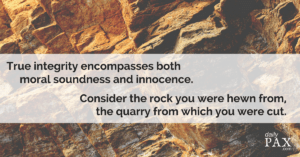 My earliest memory of the word LOVE, is listening to my mother sing along with singer/song writer, Jackie DeShannon. “What the world needs now, is love, sweet love. It the only thing that there’s just too little of. What the world needs now, is love, sweet love. No, not just for some, but for everyone.”
My earliest memory of the word LOVE, is listening to my mother sing along with singer/song writer, Jackie DeShannon. “What the world needs now, is love, sweet love. It the only thing that there’s just too little of. What the world needs now, is love, sweet love. No, not just for some, but for everyone.”
This song, released in the mid-60s, was a plea for something that was missing in the culture –love. The United States had just become involved in the Vietnam War, then Robert Kennedy was assassinated. This song became a sort of audio vigil for a country shaken by political violence. A Los Angeles radio station played the song again and again for over 24 hours. It was an old-school “social media” instrument that pulled a mourning country together.
That tragedy, and a whole generation, confronted our country for its lack of love. I believe we still need to be confronted for our lack of love, because the whole world is crying out for want of it!
Not the mushy, emotional, thing we think is love. The thing that demands, “Be this way, or that way. Be what I need, so I can love you.” No, what the world needs is real love, love that has no demands, makes no claims, and is marked by an outward focus.
The meaning of real love, or agapé, as the Greeks called it, encompasses the attributes of acceptance, equality, tolerance, and respect, yet is uniquely focused on the other. Love does not demand these things for itself, it extends them to the other. In its highest expression, true love is selfless love.
Thinking more about the needs of the other person elicits a change in me. As I begin to release my expectations of who the other person should be, accepting them as they are, I am able to really love them.
After all, this is how I want to be loved, as I am. Isn’t this the way God loves us? With. Out. Condition.
Yes, we should always strive to be the best version of ourselves, but love needs to be expressed along that process. The greatest gift you can give someone is to love them as they are, not as you think they should be.
Everyone loses as we continue to tout the importance of personal preferences, and promote the good of the individual, over the good of the whole.
What the world needs now is love, sweet love. But love that is extended, through acceptance, equality, tolerance, and respect. And this love is not just for some, but for everyone.
Threadbare Words is a series of pieces exploring thin, worn-out words. The idea is to examine their real meaning, consider their overuse and, finally take a fresh look at them through the filter of a 21st century mind to discern if they’re still relevant.
 It’s no wonder this word is ambiguous for us today. Once, if you had a faith, you were different, you stood out. Now everyone has a “faith.” I was recently contending with an atheist, (as I enjoy doing) and when I pressed him on some of his vaguer reasons for choosing NOT believing in God, he said, “Well, you know, somethings require a bit of faith.” Yes, I suppose they do.
It’s no wonder this word is ambiguous for us today. Once, if you had a faith, you were different, you stood out. Now everyone has a “faith.” I was recently contending with an atheist, (as I enjoy doing) and when I pressed him on some of his vaguer reasons for choosing NOT believing in God, he said, “Well, you know, somethings require a bit of faith.” Yes, I suppose they do.
 What is it about this idea or word? For many, the use of the word BLESSED, scratches someplace inside. I’ve spent some time this weekend reading and contemplating why the phenomenon exists, and why many of us struggle when we hear others use the term.
What is it about this idea or word? For many, the use of the word BLESSED, scratches someplace inside. I’ve spent some time this weekend reading and contemplating why the phenomenon exists, and why many of us struggle when we hear others use the term. We don’t really use this word – HOPE – too much, anymore. I mean, we might hope to get into this school, or hope we land that job, or hope our health improves, or hope we meet that perfect person.
We don’t really use this word – HOPE – too much, anymore. I mean, we might hope to get into this school, or hope we land that job, or hope our health improves, or hope we meet that perfect person. process. It isn’t difficult, but it takes work. Unlike most of our lives today, you cannot get the most recent app and begin the process.
process. It isn’t difficult, but it takes work. Unlike most of our lives today, you cannot get the most recent app and begin the process.
 because I don’t feel I’ve earned it. Have you felt this way? It’s like I have this idea of who I think I’m supposed to be, the perfect LISA. I’ve learned, that as I attempt to be the perfect LISA, I am missing out on the real LISA. My ideas of perfection get in the way of knowing who I really am.
because I don’t feel I’ve earned it. Have you felt this way? It’s like I have this idea of who I think I’m supposed to be, the perfect LISA. I’ve learned, that as I attempt to be the perfect LISA, I am missing out on the real LISA. My ideas of perfection get in the way of knowing who I really am.

 I have often been asked if Spiritual Growth is really possible?
I have often been asked if Spiritual Growth is really possible?